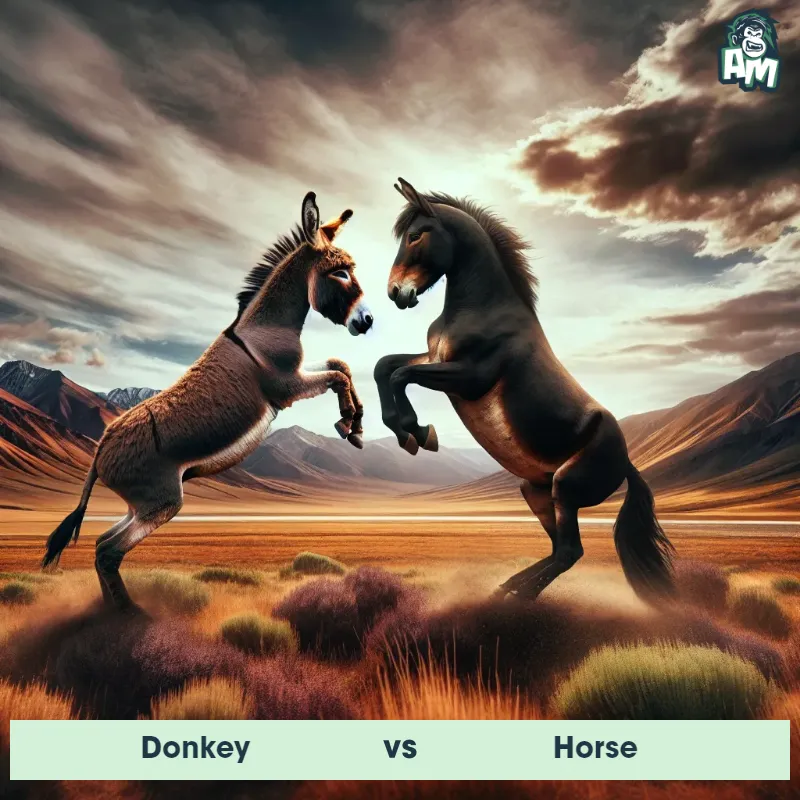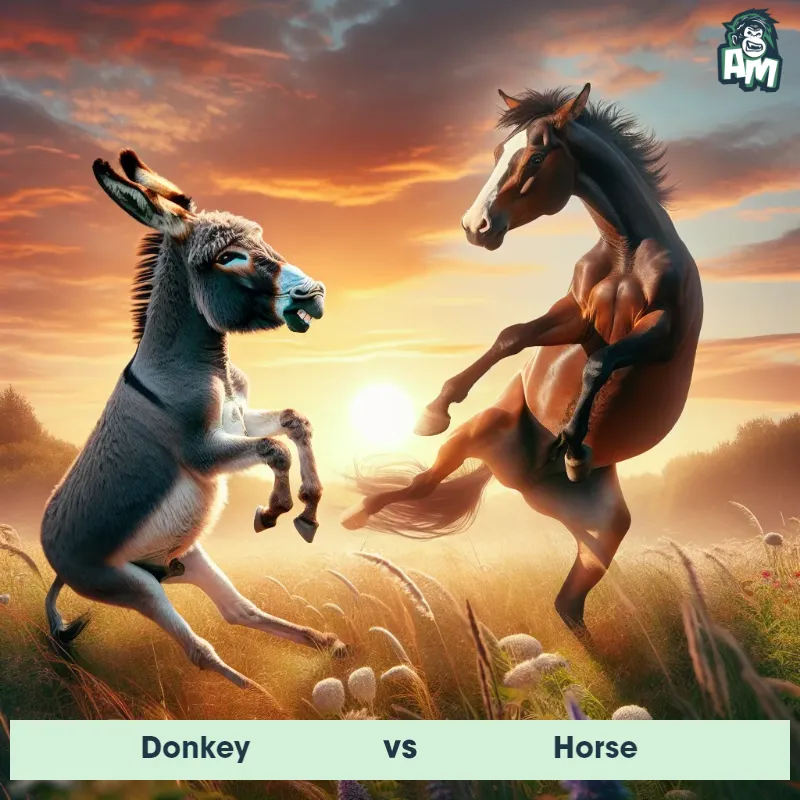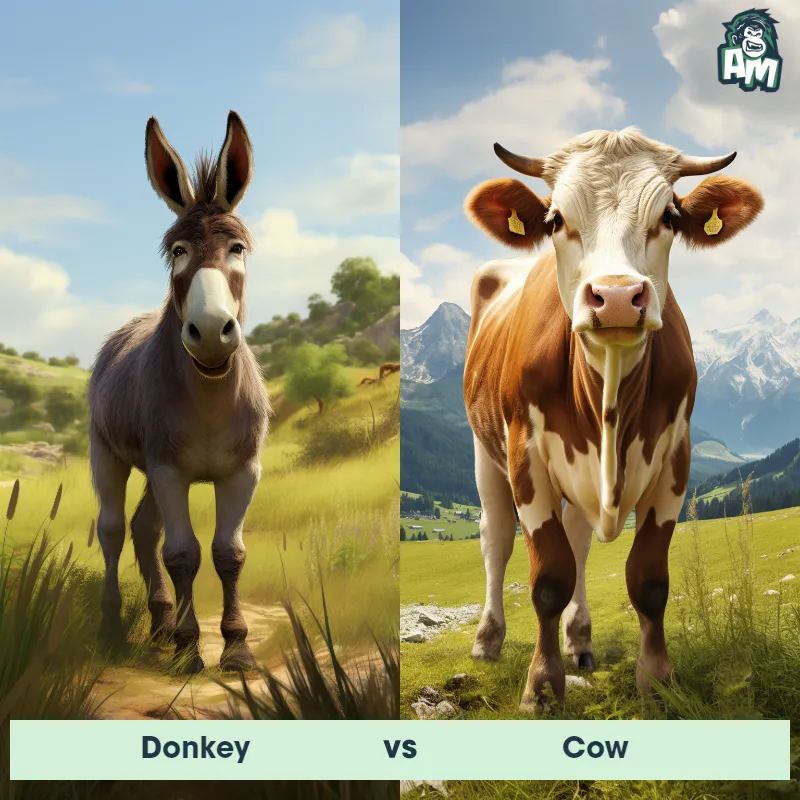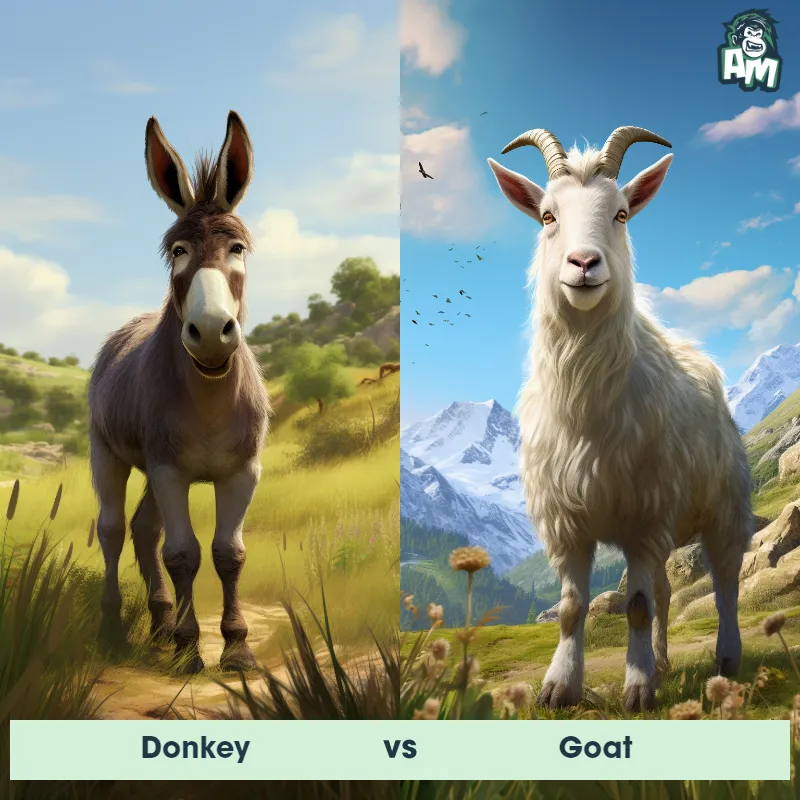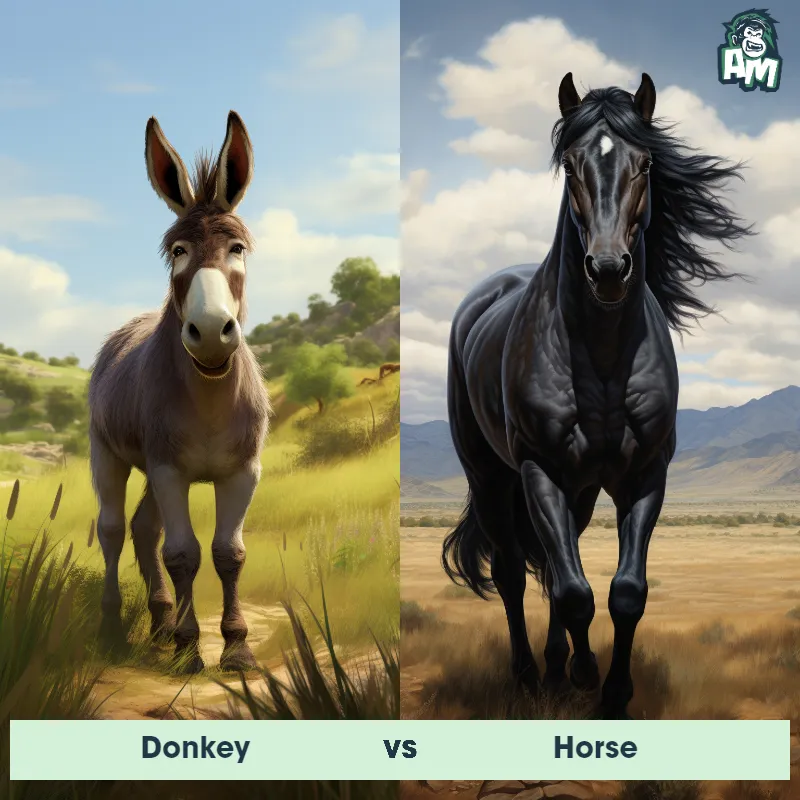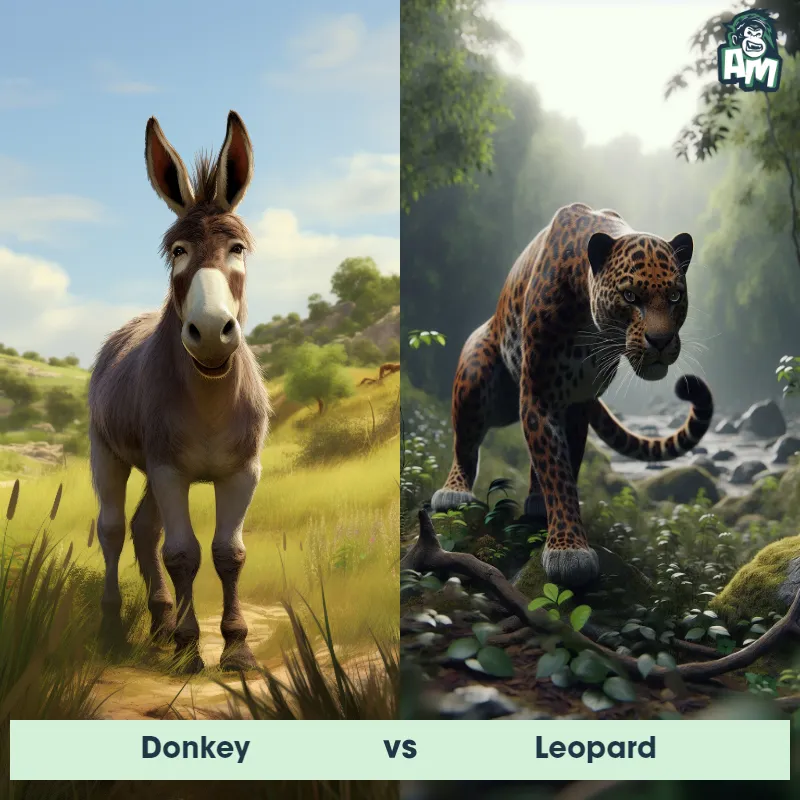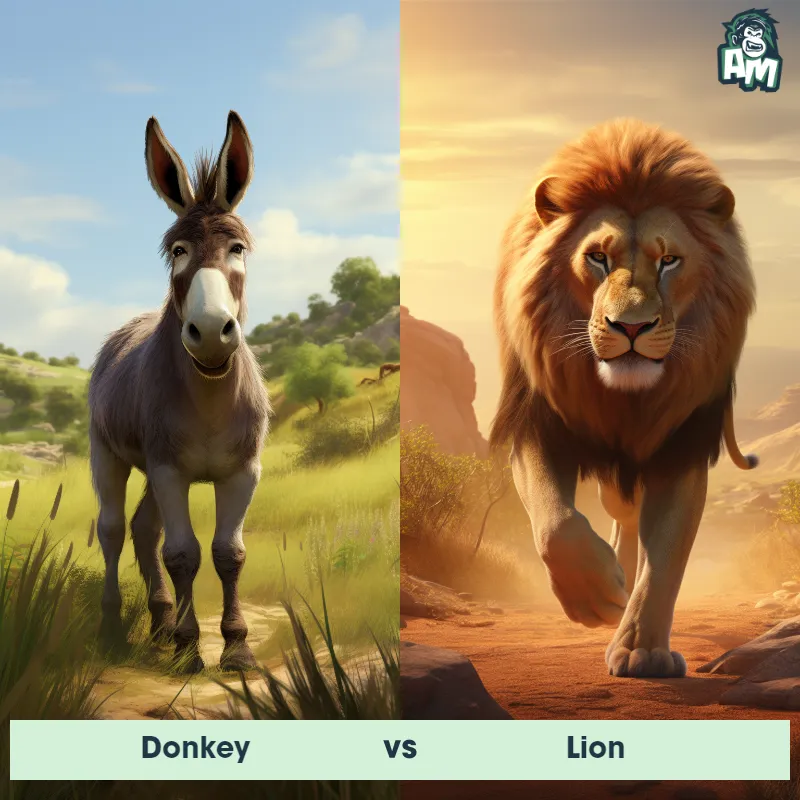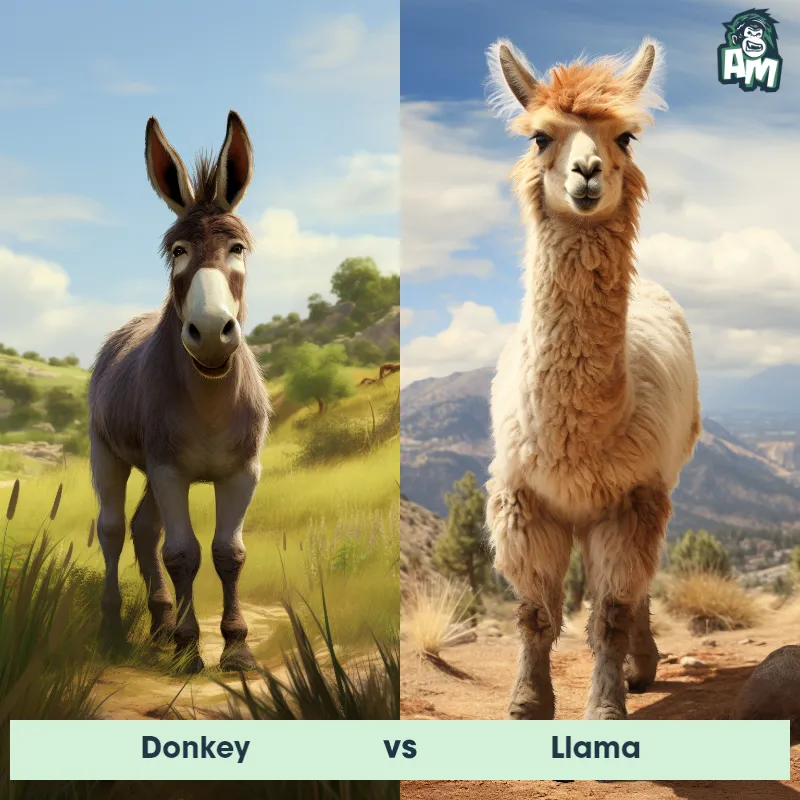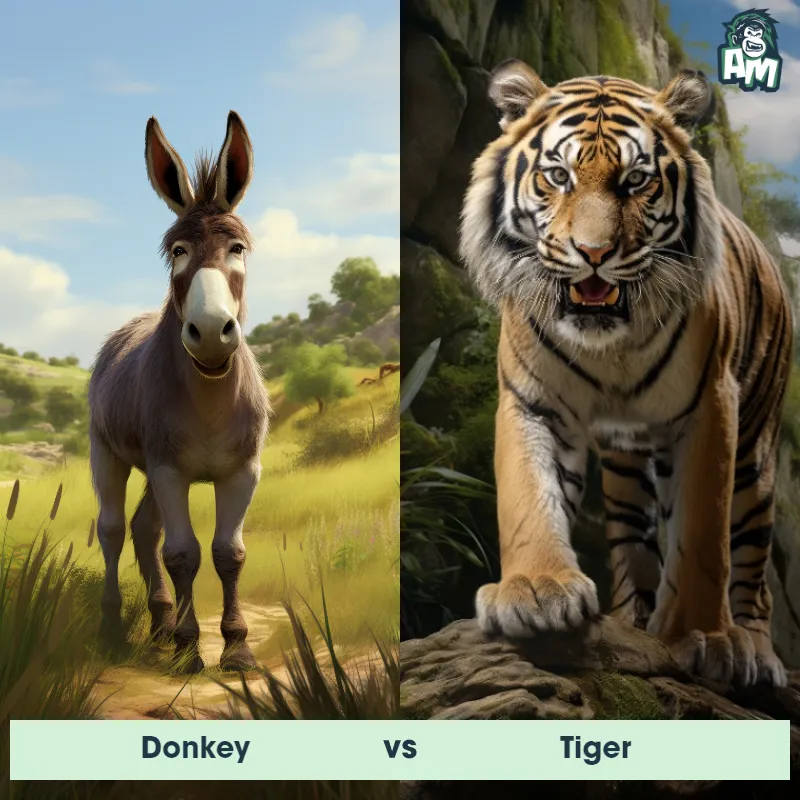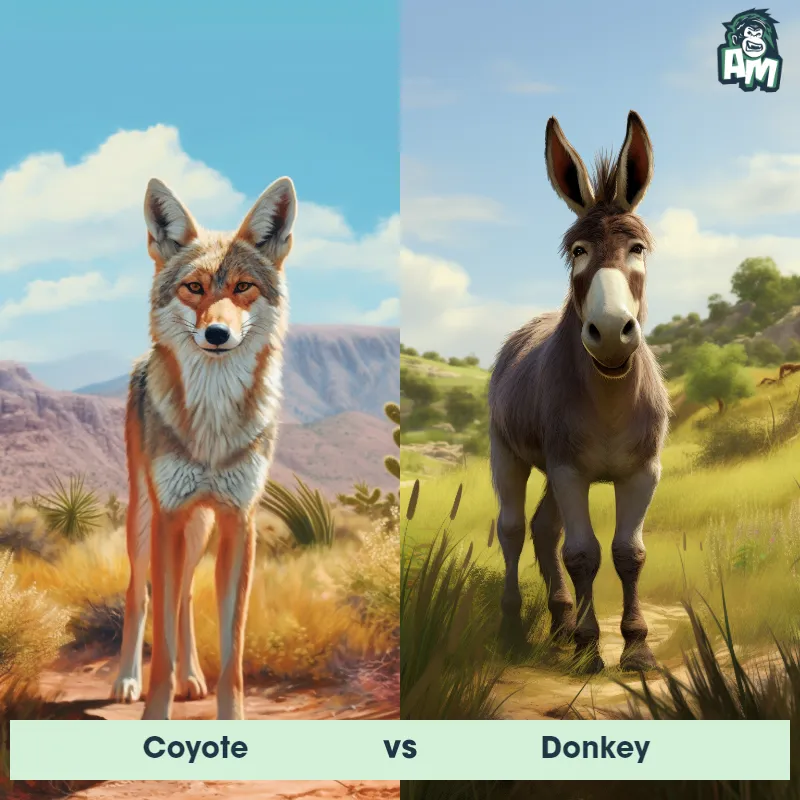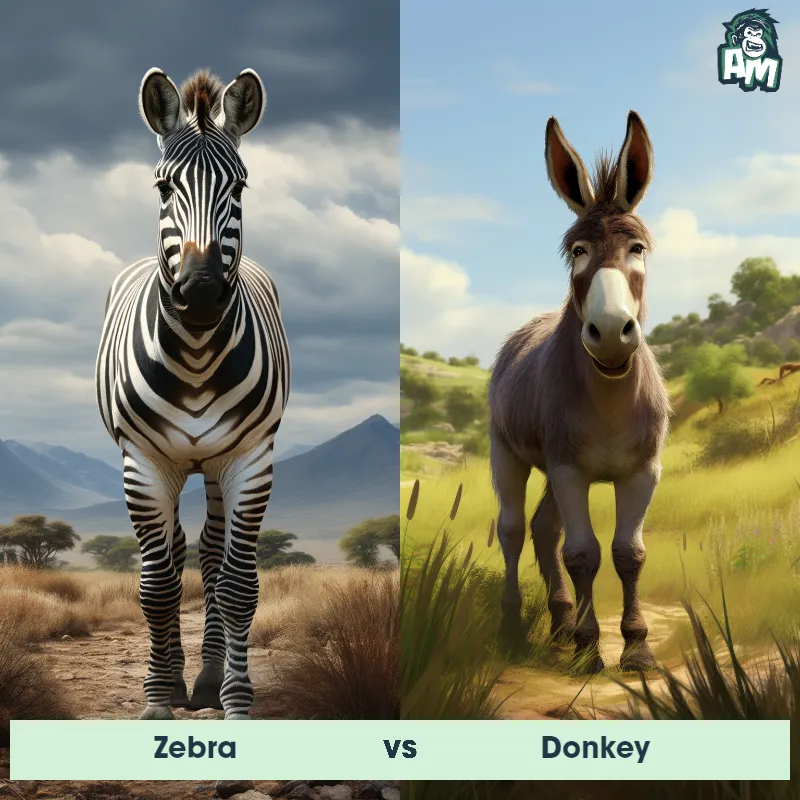The Donkey
Donkeys, also known as asses, are domesticated members of the horse family. They are known for their sturdy build, long ears, and a tail with a tuft at the end. Donkeys typically have a grey or brown coat, although some may have other colors. They have strong hooves and a distinctive braying sound. Donkeys are intelligent animals that are used for various tasks, such as carrying loads or as companion animals. They are known for their endurance and sure-footedness, thus making them excellent pack animals in mountainous terrains.
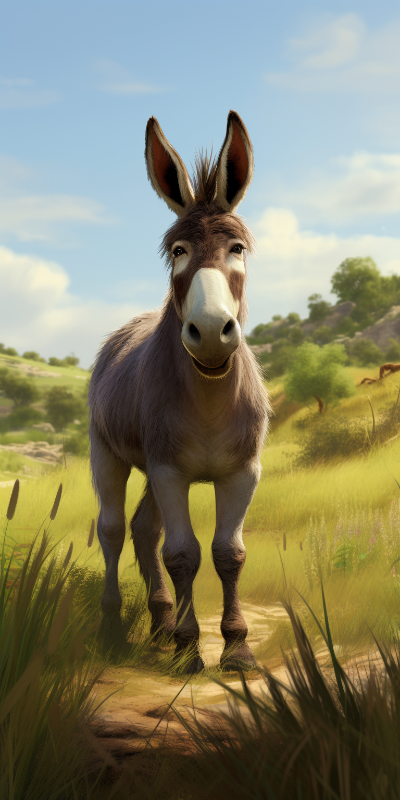
| Donkey | |
|---|---|
| Size | 31 to 63 inches tall at the shoulder (78.74 to 160.02 cm) |
| Weight | 180 to 1,060 pounds (81.65 to 480.81 kg) |
| Speed | 15mph (24km/h) |
| Key Strength | Strong kick, endurance |
| Biggest Weakness | Slower speed compared to predators |
| Scientific Name | Equus africanus asinus |
| Family | Equidae |
| Habitat | Domesticated, adaptable to various environments |
| Geography | Worldwide |
| Diet | Herbivore, primarily eats grasses, shrubs, and grains |
| Lifespan | 15 years - 50 years |

The Donkey
Donkeys, also known as asses, are domesticated members of the horse family. They are known for their sturdy build, long ears, and a tail with a tuft at the end. Donkeys typically have a grey or brown coat, although some may have other colors. They have strong hooves and a distinctive braying sound. Donkeys are intelligent animals that are used for various tasks, such as carrying loads or as companion animals. They are known for their endurance and sure-footedness, thus making them excellent pack animals in mountainous terrains.
Fun Fact: Donkeys have a reputation for being stubborn, but they are actually very cautious animals and tend to be hesitant when faced with unfamiliar situations or threats.
| Donkey | |
|---|---|
| Size | 31 to 63 inches tall at the shoulder (78.74 to 160.02 cm) |
| Weight | 180 to 1,060 pounds (81.65 to 480.81 kg) |
| Speed | 15mph (24km/h) |
| Key Strength | Strong kick, endurance |
| Biggest Weakness | Slower speed compared to predators |
| Scientific Name | Equus africanus asinus |
| Family | Equidae |
| Habitat | Domesticated, adaptable to various environments |
| Geography | Worldwide |
| Diet | Herbivore, primarily eats grasses, shrubs, and grains |
| Lifespan | 15 years - 50 years |
Match Highlights
Donkey Matchups
We use AI to simulate matchups between the Donkey and other animals. Our simulation considers size, strength, and natural predatory behaviors to determine the most likely outcome.
Donkey: Diet, Predators, Aggression, and Defensive Behaviors
What do Donkeys eat?
Donkeys are herbivores and typically graze on grasses, shrubs, and other vegetation. They have a digestive system that is adapted to roughage and can thrive on a diet of hay, grass, and occasional treats like carrots or apples. It is important for donkeys to have access to fresh water at all times to stay healthy.
Do Donkeys have any predators?
Donkeys do have predators in the wild, including large carnivores like coyotes, wolves, and mountain lions. However, their strong herding instinct and formidable hooves can help protect them from potential threats. In some regions, donkeys are also at risk of predation from humans looking to harm or capture them.
Are Donkeys aggressive?
Donkeys are known for their intelligence and stubborn nature, but they are not typically aggressive animals. However, they may exhibit aggression towards perceived threats or when feeling stressed. It is important for handlers to establish trust and respect with donkeys to prevent any aggressive behavior.
Do Donkeys fight?
Donkeys have a complex social structure and may engage in fights with each other to establish dominance or resolve conflicts within the herd. These fights can involve loud vocalizations, biting, kicking, and aggressive posturing. However, donkeys are more likely to use threats and displays of dominance rather than physical violence to settle disputes.
How do Donkeys defend themselves?
Donkeys have several natural defense mechanisms to protect themselves from predators or threats. Their strong hooves are capable of delivering powerful kicks to potential attackers. Donkeys may also bray loudly to alert others of danger, and they have an acute sense of hearing and smell to detect approaching predators.
What is the biggest weakness of a Donkey in a fight?
Despite their strong hooves and ability to deliver powerful kicks, a donkey's biggest weakness in a fight is their relatively small size compared to larger predators. While they can hold their own against most threats, donkeys may struggle against larger predators like big cats or packs of wolves that can overpower them with sheer strength and numbers. Their best defense in such situations is to rely on their instincts and attempt to escape rather than engage in a physical fight.
Fun Fact: Donkeys have an incredible memory and can recognize other donkeys or familiar humans even after several years of separation.
Fun Fact: Donkeys are known for their keen senses and can hear sounds that humans cannot detect, such as ultrasonic frequencies emitted by insects.



